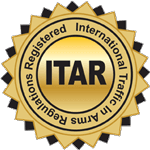Custom CNC machining offers component designers considerable convenience during product development. This machining technique improves product accuracy and production efficiency while also decreasing waste. Not only will it enhance aesthetics, but it also augments functionality and structural strength to make a better end product. Using custom CNC machining methods also helps decrease production costs, improving profit margins and competitiveness.
Advantages of Custom CNC Machining
The costliest step for making components via plastic injection molding usually comes from developing and fabricating the mold utilized for this purpose. Each mold will fabricate thousands or millions of parts, so it is crucial to ensure its accuracy and reliability over time. As such, custom CNC machining has become the go-to processing option for manufacturing molds for plastic injection molding, particularly for complex components requiring tight tolerances.
Some advantages of CNC machining for this process include:
- Automated processes of many CNC machining systems are safer for machinists than manual machining.
- Ability to produce exact components with complex shapes quickly.
- Greater precision than manual machining, allowing parts to be produced more reliably and with better uniformity.
- Producing workpieces with CAD software that aren’t replicable manually.
- Relatively few steps are necessary for producing parts, making it highly efficient.
In addition to making molds for the injection molding process, CNC machining is often used to remove blemishes like divots from ejector pins, gate marks, and parting lines after plastic components cool and harden.
Supporting Product Development with CNC Machining
While there are some limitations when using any method for developing new products, CNC machining offers a few general advantages over other methods for manufacturers. Custom CNC machining is also well-placed in its use of intelligent automation in its processes, with many operations capable of running without direct human intervention. For plastic injection mold making, CNC techniques offer manufacturers better quality and faster development of new products, which enhances competitiveness.
Improved Quality
Custom CNC machining can make parts with consistent shapes and sizes. This uniformity enhances their quality, significantly improving their functionality in the final product. Additionally, using CNC technology saves time and money, improves product efficiency, decreases the need for manual operations, and generally makes for a more effective development process. Using custom machining techniques also allows a more tailored approach that offers greater choice and makes for a better overall product.
Quick Development
Time is money in manufacturing, and CNC machining can shorten product development timelines considerably. Using CNC machines, manufacturers can more easily engage in rapid prototyping techniques that allow designers to quickly improve the reliability and quality of products during the design phase. Utilizing this technology gives manufacturers more options while allowing product designers to refine components more quickly to bring products to market sooner. This, in turn, improves a manufacturer’s ability to design new products.
Enhanced Competitiveness
Custom CNC machining enhances manufacturer competitiveness, allowing manufacturers to improve their components’ accuracy to make their end product work better. Manual machining methods not only are less accurate, but they also take longer. The automation inherent in custom CNC machining techniques allows manufacturers to develop their products in less time while bringing these higher-quality products to market more quickly. This provides an advantage for manufacturers competing against competitors using less advanced methods. It levels the playing field for those competing against those already using custom machining for developing products.
Ready to automate your next job?
VIEW OUR EQUIPMENTPrototyping & Custom CNC Machining
While prototyping can be done using digital modeling, 3D printing, and advanced laser cutting techniques, custom CNC machining offers some specific advantages. While it’s easier to change designs with digital models, the CAD software used in custom CNC machining allows product designers similar capabilities while providing a physical prototype that can be tested in real-world situations. Although 3D printing has become popular for rapid prototyping among many manufacturers, this method cannot produce the accuracy of CNC machined prototypes. Laser cutting is also limited for prototyping, as it can only cut directly through a material. At the same time, CNC machining techniques enable the drilling of blind holes and other cavities.
The Staub Advantage for Custom CNC Machining
To support new product development, we have an array of custom CNC machining dedicated to the creation of plastic injection molds for parts manufacturers. At Staub, we’re also committed to providing DFMA (Design for Manufacture and Assembly) solutions to manufacturers throughout the design phase. Our company seeks to be a useful partner in developing new products, including through support and advice on avenues for improvement regarding processes and design.
Staub offers custom CNC machining and other solutions that include:
- 5-axis machining: Set up to make just-in-time orders for parts available to our customers; we can do both batch orders that require a single delivery and blanket orders with multiple dates for distribution.
- CNC milling: We offer considerable flexibility with an automated CNC milling system that uses horizontal mills in an adaptable manufacturing environment.
- CNC turning: Ideal for higher volume projects, our automated turning technology offers the means for customers who require regular production runs of complex components.
- EDM machining: Staub’s EDM capabilities are here to meet your needs for particularly demanding tolerances.
- Finishing: With turnkey finishing services, we can provide finished components with considerable precision.
- Laser & waterjet cutting: Our laser and waterjet cutting systems can produce parts with tight tolerances.
- Mill-turn machining: We offer hybrid milling and turning solutions that enable us to fabricate more complex workpieces in a single operation.
- Rotary transfer machining: For larger batches, our rotary transfer machines allow for production runs that fabricate large numbers of parts.
To learn more about Staub’s custom CNC machining and other capabilities, contact our expert team today.



